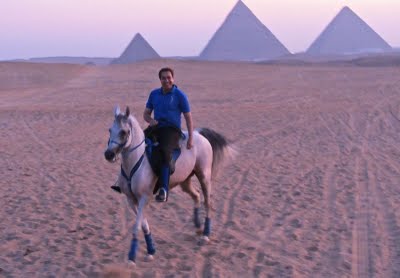Blog May 14, 2012
Cairo Wedding Night with Hakim
The weeks before Ramadan, which starts on August 1 this year, are packed with weddings in much of the Muslim world, and Cairo is no exception. On Sunday night, we met up with the king of Egyptian sha'bi music, Hakim, and tagged along while he sang at two such events. This is a well-oiled routine. All the PA equipment is set up in advance, and the band simply moves with their instruments, arriving just in time to perform at each location. Hakim told us he recently performed at four weddings in one night, finishing just before 6AM. So this was a relatively light night of work.










